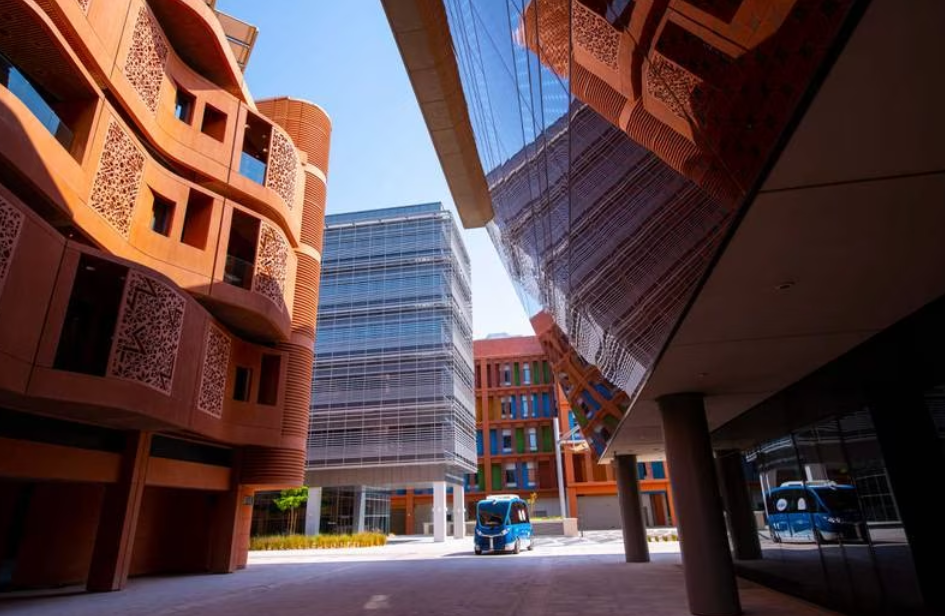
Adnoc and the National Central Cooling Company, better known as Tabreed, have announced the “first project” in the Gulf region that harnesses geothermal energy.
The companies have concluded the testing of two geothermal wells at Abu Dhabi’s Masdar City, they said in a statement on Monday.
The hot water generated by the heat from the wells will pass through an absorption cooling system to produce chilled water, which will then be supplied to Tabreed’s district cooling network at Masdar City, meeting 10 per cent of the sustainable research and development hub’s cooling needs.
“Across Adnoc, we are developing and deploying innovative climate technologies and low carbon solutions to deliver on our accelerated decarbonisation plan and net zero by 2045 ambition,” said Musabbeh Al Kaabi, Adnoc executive director for low carbon solutions and international growth.
“Geothermal heat is a clean and renewable source of energy abundantly available in the UAE and capable of providing baseload electricity. However, until now, it has remained an untapped source of energy,” Mr Al Kaabi said.
Geothermal energy harnesses the heat generated within the Earth’s core to provide a constant energy source, unlike solar or wind, which are intermittent in nature. Geothermal energy plants also have high-capacity factors, meaning they can run at maximum power for longer periods.
In March, Adnoc Drilling signed a five-year preliminary agreement with Abu Dhabi’s clean energy company Masdar to explore partnerships and investments in geothermal energy.
Last month, Adnoc said it planned to reach net zero emissions by 2045, bringing the deadline forward from its previous target of 2050.
The company has allocated $15 billion to invest in a range of projects up to 2030, which will help it to hasten its low-carbon growth strategy.
These projects include clean power, carbon capture and storage, further electrification of operations, energy efficiency and new measures to build on its policy of zero routine gas flaring.
The UAE is investing heavily in clean energy projects and has announced several initiatives as it seeks to reach net zero emissions by 2050.
The country is developing clean energy projects such as the Barakah nuclear plant, a two-gigawatt solar plant in Abu Dhabi's Al Dhafra region and the five-gigawatt Mohammed bin Rashid Al Maktoum Solar Park in Dubai.
In July, the Cabinet also approved an updated version of the UAE Energy Strategy 2050 and the development of the National Hydrogen Strategy.
Under the updated objectives of the UAE Energy Strategy 2050, the Arab world’s second largest economy will invest Dh200 billion ($54 billion) by 2030 to ensure energy demand is met while sustaining economic growth.
“The integration of geothermal energy with district cooling operations represents a significant advancement in the UAE's journey towards diversifying its energy mix and achieving net zero by 2050," said Khalid Al Marzooqi, chief executive of Tabreed.
"We are proud of our collaboration with Adnoc to accelerate our decarbonisation efforts in the lead-up to Cop28, which also underscores our commitment to exploring the latest technologies and harnessing the power of renewables to meet the rising demand for sustainable cooling,” Mr Al Marzooqi said.